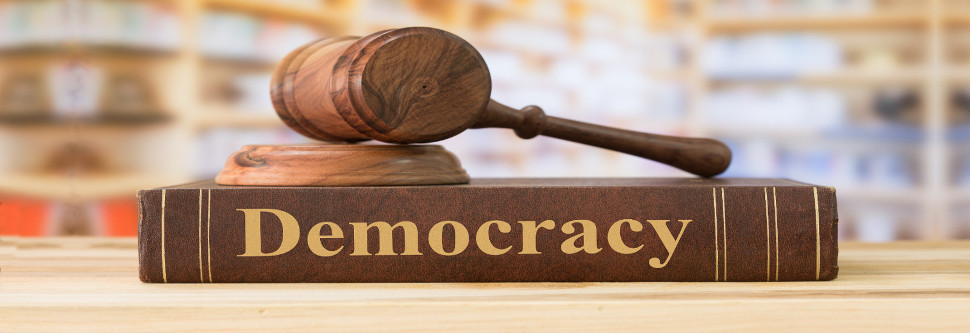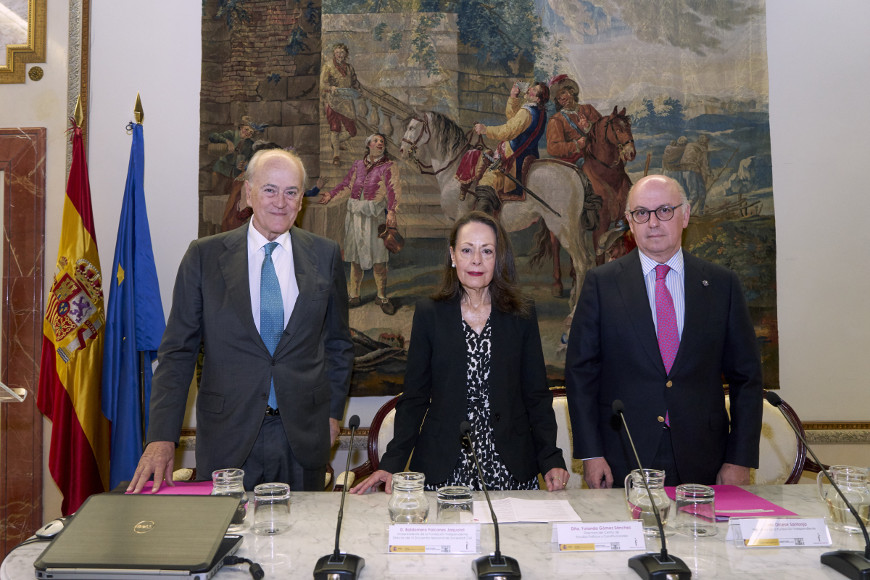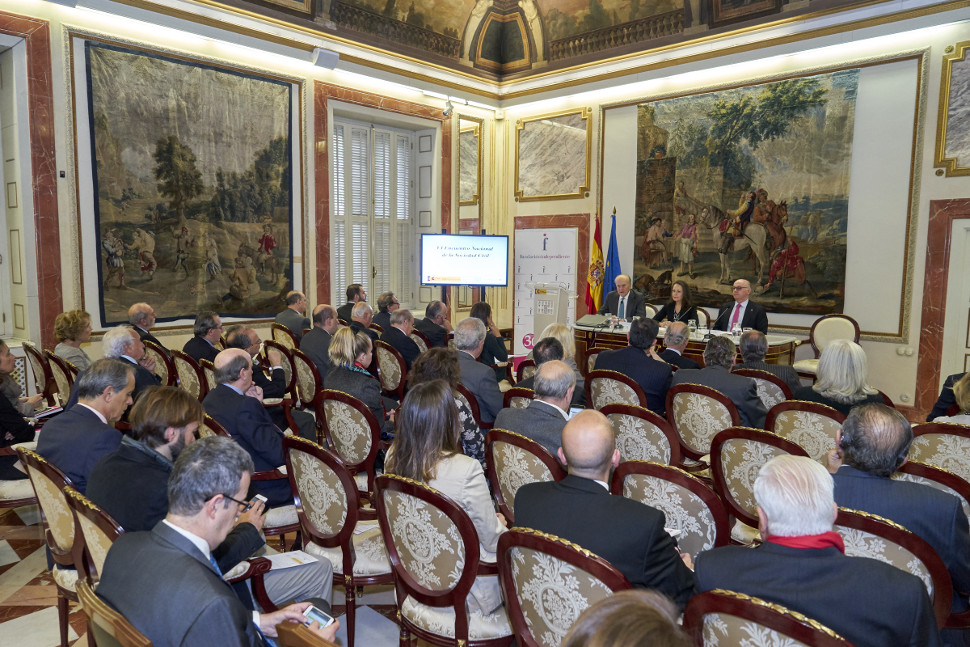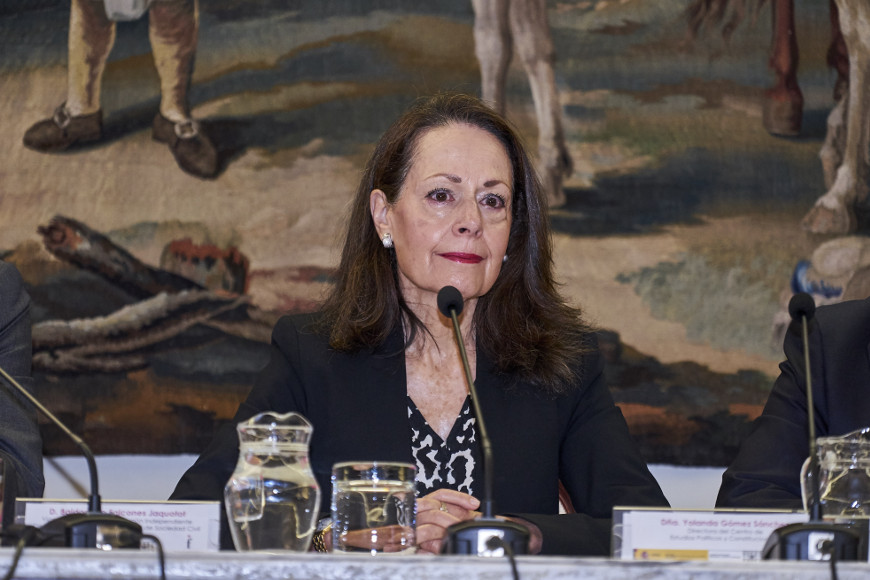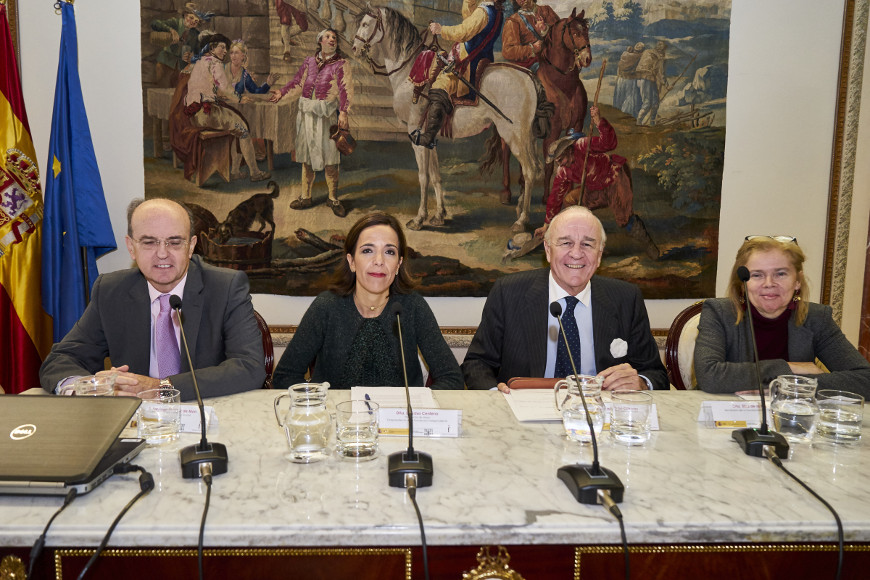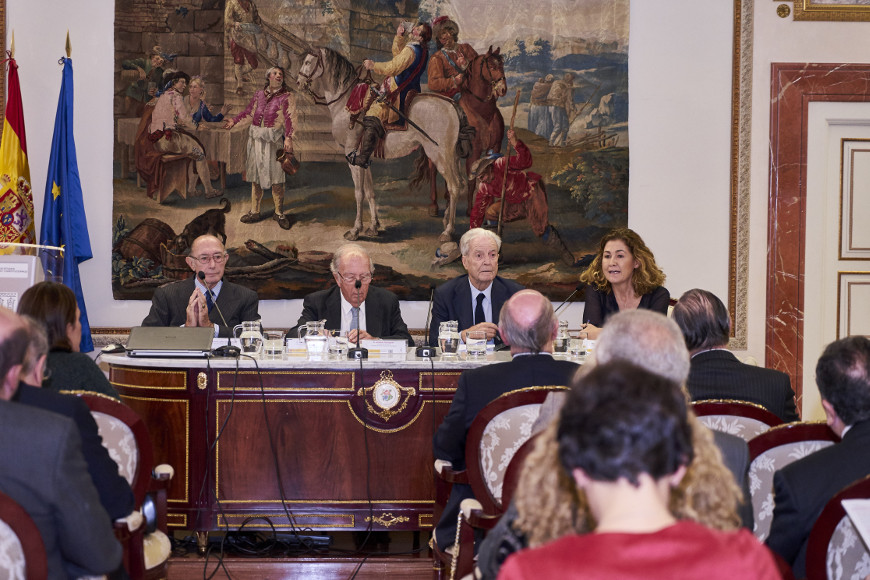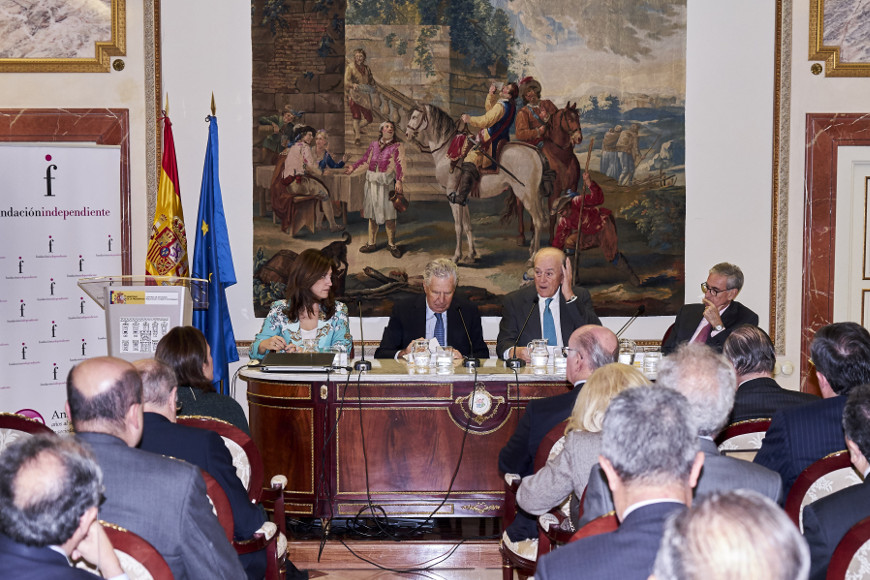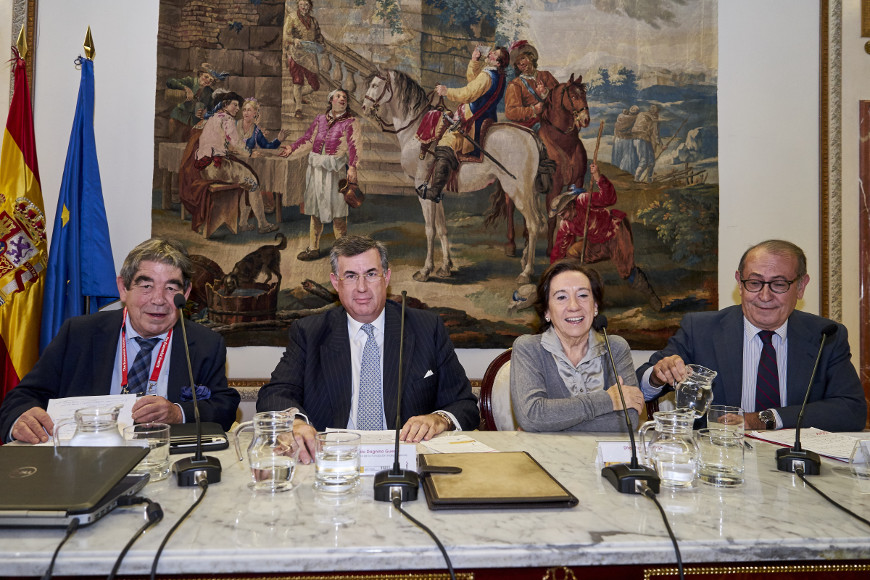Aldo Olcese, president of the Spanish Independent Foundation and full academician elect of the Royal European Academy of Doctors-Barcelona 1914 (RAED), has led the 4th National Meeting of Civil Society, which was held on November 20 in the Spanish Centre of Political and Constitutional Studies, in Madrid, under the title “El ejercicio de la política. Consolidando nuestra Democracia” (The exercise of politics, Consolidating our Democracy). The Independent Foundation opted to organize these sessions in which the major State issues are debated among the most relevant entities and personalities of Spanish civil society with the aim of offering alternative proposals to those proposed by the institutions.
The forum brought together leading political figures such as Trinidad Jiménez, director of Global Strategy for Public Affairs and former minister of Foreign Affairs and Health of Spain; Marcelino Oreja, former minister of Foreign Affairs of Spain (1976-1980); Jaime Lamo de Espinosa, former minister of Agriculture of Spain (1978-1981); Elisa de la Nuez, secretary of the There is Right Foundation; Ignacio Gil-Casares, former president of Spencer Stuart; Santiago Álvarez de Mon, professor at the IESE business school; Jaime Carvajal, president of Advent International Advisory; Ana Samboal, journalist; Ramón Jáuregui, Euro deputy and former minister of the Presidency of Spain (2010-2011); Nicolás Redondo, general secretary of the PSE-EE-PSOE (1997-2001); Tom Burns, journalist and essayist, and Victoria Prego, journalist, among other outstanding figures.
The participants tried to answer the questions that opened each of the working groups, which were, among others: What should be the objective circumstances that favour the State Pacts? What attitude and conditions should the political parties have and fulfil to achieve the State Pacts? What can be the role of Civil Society in the State Pacts? Does the Head of State have a role in this? What should be the subjects for the basic consensus? Is it worth rethinking Spain from the intellectual vision of our great thinkers? What are the interrelationships between politics, business and civil society? What bad practices have to be eradicated from these relationships? The revolving doors, yes or no? A necessary change in the electoral model? Reform of the regulation of political parties and their financing? Rethink the model of political representation in Europe?
The day brought interesting conclusions that the Independent Foundation and the Centre for Political and Constitutional Studies will summarize in a publication that will be sent to parties and institutions in order to take them into account when preparing their programs and directing their policies.

